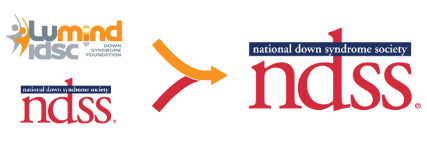LuMind IDSC releases guide for families learning about Alzheimer’s disease therapies
MARCH 14, 2025 – In anticipation of new opportunities for adults with Down syndrome to participate in clinical trials for Alzheimer’s therapies, LuMind IDSC developed a guide introducing families to the differences in the therapeutic approaches.
People with Down syndrome face a heightened risk of developing Alzheimer’s disease (AD) due to their unique genetic makeup. While researchers have made progress in understanding the biological mechanisms underlying Alzheimer’s, much remains to be learned about how to intervene effectively to protect brain health in this community.
Today, multiple research efforts are underway to identify effective therapeutic approaches for individuals with Down syndrome, each targeting the problem in a distinct and specialized way.
Understanding the differences among these new therapies is crucial—not only in terms of how they are meant to prevent or slow the progression of AD, but also in the drug delivery methods. Some therapies aim to address the problem at its source, while others focus on clearing existing damage. By exploring these nuances, caregivers and self-advocates can better appreciate the research underway and the steps scientists are taking to potentially improve outcomes for individuals with Down syndrome.
The guide, “Understanding key differences among the current and emerging Alzheimer’s clinical trials in Down syndrome” is available free of charge, with no log-in required.
Download the Guide to print here.
About LuMind IDSC:
Founded in 2004 by families seeking better research and more meaningful connections, today LuMind IDSC envisions a world where every person with Down syndrome thrives with improved health, independence, and opportunities to reach their fullest potential. LuMind IDSC is a national Down syndrome research advocacy organization that serves as the bridge between researchers and the Down syndrome community. LuMind IDSC programs accelerate research for people with Down syndrome and empower families with connections, resources and support.
For more information, please visit: www.LuMindIDSC.org to learn about other co-occurring conditions in Down syndrome, policy issues that impact our community, ways to connect, and opportunities to participate in Down syndrome research.
